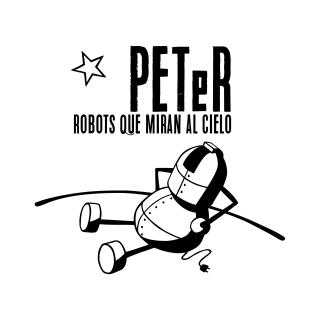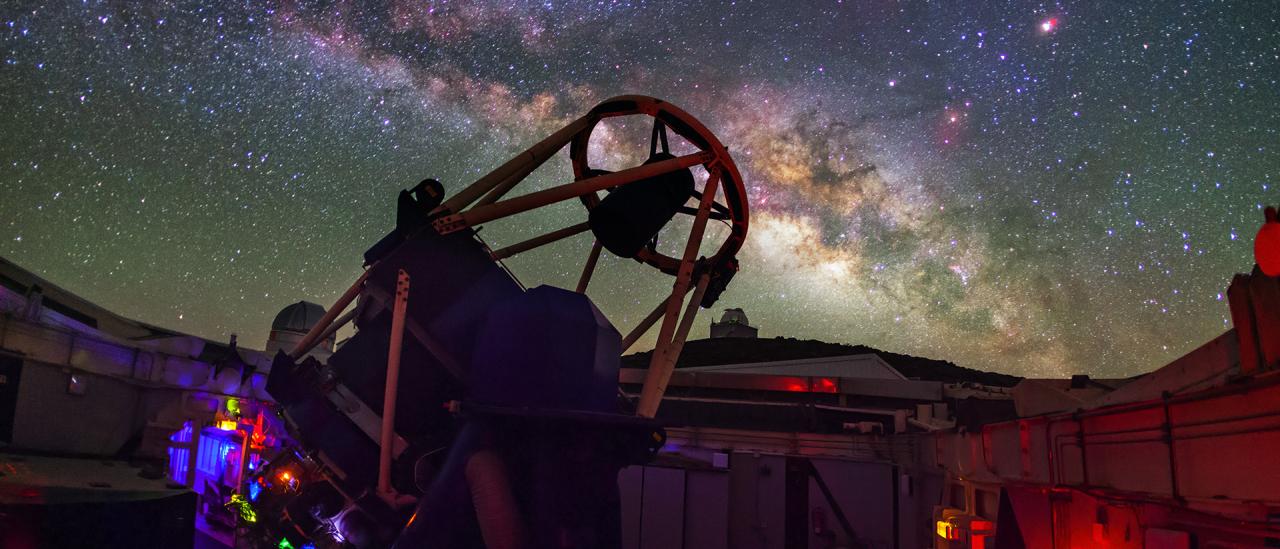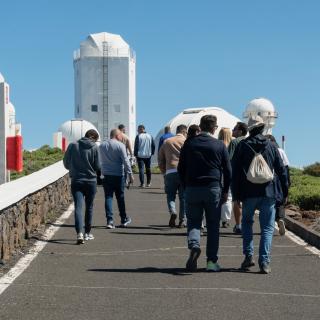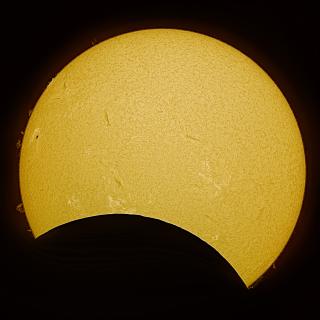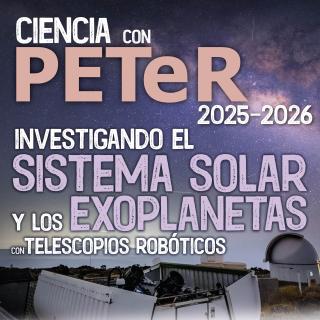The Educational Project with Robotic Telescopes (PETeR, for its Spanish initials) of the Instituto de Astrofísica de Canarias (IAC) will be offering, from next week, online training sessions for Spanish teachers.
PETeR is an online laboratory which allows pre-university students to make their own astronomical observations and investigations using professional robotic telescopes. These instruments are designed to work with complete autonomy. For this reason, in spite of the closure of many observatories around the world due to the exceptional measures to confront COVID-19, some of the telescopes available in PETeR are still open to the Spanish educational community. These include the Liverpool Telescope, at the Observatorio del Roque de los Muchachos (Garafía, La Palma), which with its two metre diameter mirror is one of the largest robotic telescopes in the world. It will also be possible to use the 40 cm telescopes of the Las Cumbres Observatory in Tenerife, Hawaii and Australia.
One of the main aims of PETeR is the training of teachers in Astronomical subjects, and in the use of robotic telescopes as tools so that the students can develop their scientific and technical abilities via guided research projects. During the last five years the coordinator of the project Nayra Rodríguez Eugenio has trained over 300 teachers from the whole of Spain and also from other countries. Now, given the situation of confinement in which we are placed, PETeR training will be carried out online.
Teachers in the Canaries
Through a tight and active collaborattion between the IAC and the STEAM Area of the Department of Education, Universities, Culture and Sports of the Canary Government, teachers in the Canaries will have access, for the third consecutive year, to a training course within the PETeR project which this time will be completely carried out on Internet. The course “Investigate the Universe with Robotic Telescopes” will be given from 28th April till 12th May 2020, on Tuesdays and Thursdays between 16:30 and 18: 30 (Canary time). The training will be split into 5 sessions, of two hours per session:
- How to observe the Universe with PETeR. The skies of the Canaries, the IAC and its Observatories. What is a robotic telescope? What is PETeR? The robotic telescopes available in PETeR. How to request observations through PETeR.
- Explore the Solar System with PETeR. Concepts: inner and outer planets, gravity, the laws of planetary motion. Abilities: work with astronomical images, measure sizes and angular distances in the sky. Proposal for a research project: the phases of Venus and the apparent size of Mars. Heliocentric or geocentric model?
- How to measure the brightness of celestial objects. Concepts: brighness and luminosity, variation of brightness with distance. Abilities: identifying objects in astronomical images, measuring the brightness of celestial objects. Proposal for a research project: Does the brightness of Mars vary around the year?
- Discover variable stars with PETeR. Concepts: causes of the variation of the brightness of celestial objects. Abilities: to measure the brightness of several objects in many images, to make curves of the variation of brightness and interpret them. Proposal for a research project: Discover variable stars and characterize them.
- Explore other worlds with PETeR. Concepts: what are the exoplanets? what are their characteristics? how we can detect them? The transit method. Abilities: how to analyze the light curve of a transit. Reearch project proposal: characterize an exoplanet using its transit light curve.
Teachers who are interest in this training and in obntaining the certificate via the Department of Education of the Canary Government can register at the website Catálogo de Actividades de Formación. Registration is open until 23rd April.
More information: https://www.gobiernodecanarias.org/educacion/6/alisios/cfprec/code/DatosCurso.aspx?id=38818
Teachers and educators from the rest of Spain
Similar training will be offered to teachers in the rest of Spain via Webinars, which will start to be emitted on 20th April. Registration for this training can be made for individual sessions through the web page of the project.
For more information and registration: https://www.iac.es/peter/cursos-y-webinars/webinars/
PETeR also has a set of didactic activities, open to everyone, which make use of real astronomical images obtained with the Liverpool Telescope and which allow you to make a practical approach to knowledge of the universe from the Solar System to how we measure distances in the universe. You can find these here
More information:
Contact:
Nayra Rodríguez Eugenio, Coordinator of the project: nre [at] iac.es (nre[at]iac[dot]es), peter [at] iac.es (peter[at]iac[dot]es)
